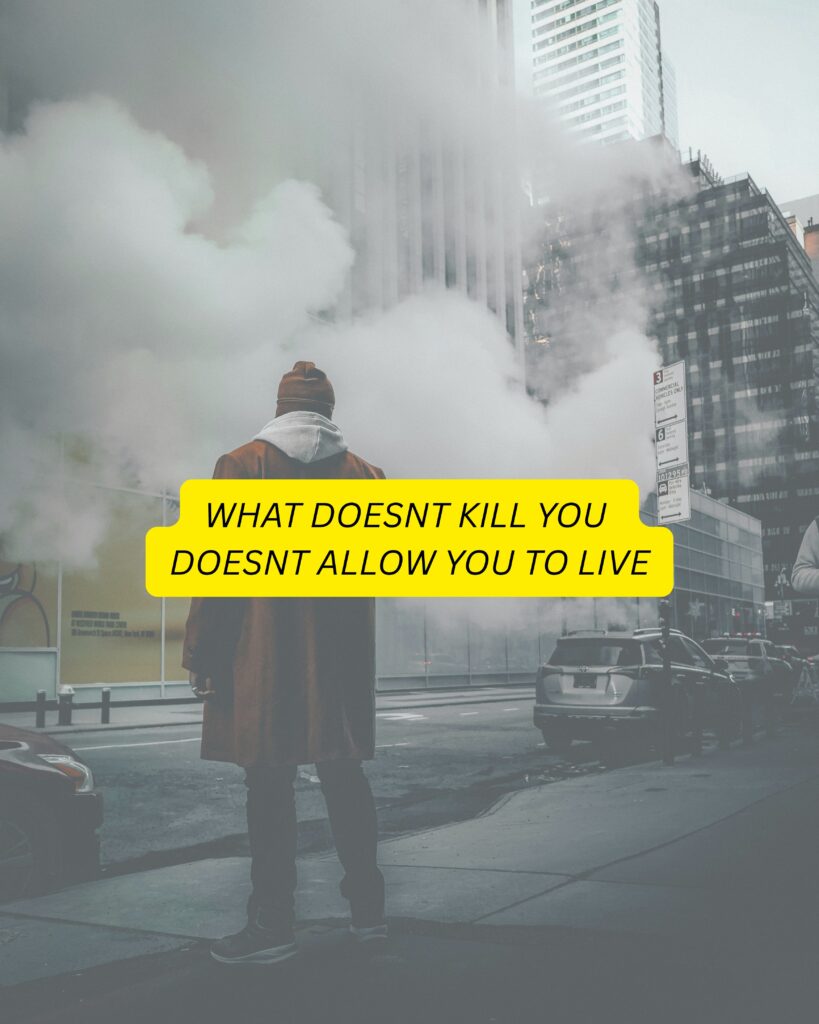
The phrase “What doesn’t kill you doesn’t allow you to live” carries a haunting contradiction. It challenges the popular Nietzschean notion of resilience—that what doesn’t kill you makes you stronger—and instead hints at a silent suffering that lingers after surviving a trauma. Not all scars are visible; some wounds, though non-fatal, continue to gnaw at the soul, draining the essence of living. Surviving a painful experience doesn’t guarantee freedom; it may leave one shackled in fear, regret, or emotional numbness.
This quote reflects the reality of people who endure battles—physical, emotional, or mental—and emerge, not as victors, but as prisoners of their memories. It asks us to acknowledge the complexity of survival. To live is to embrace joy, peace, and presence. But when survival comes at the cost of constant inner turmoil, living becomes a distant dream. The body may endure, but the spirit struggles.
In this sense, the quote is both a caution and a plea. It urges us to seek healing, not mere endurance. True strength lies not in just surviving but in reclaiming life fully, in transforming pain into wisdom and peace. Otherwise, survival becomes a shadow of living